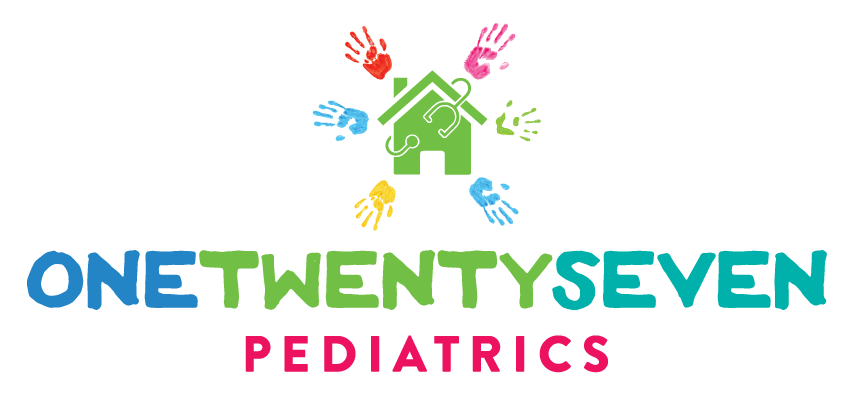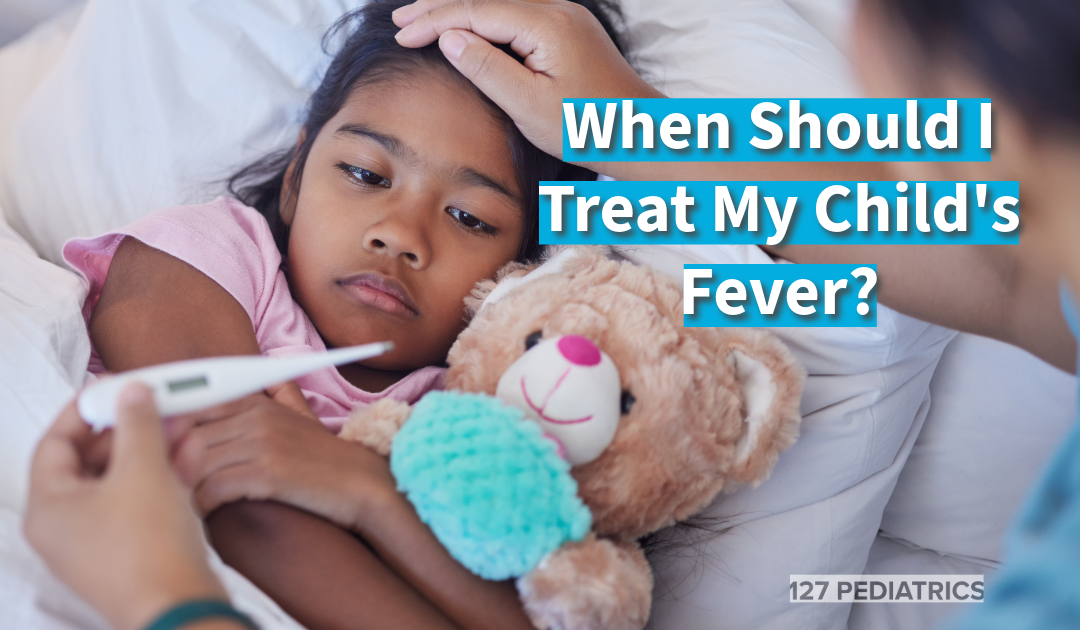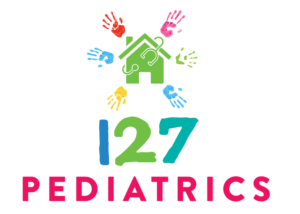Fever in children is the number one reason why parents call or text me as their at-home pediatrician. When a child has a fever, a parent’s first instinct is to worry. Even as a pediatrician, I get concerned when my child is feeling warm.
But is it necessary to stress about any and every fever in a child? Should you treat every fever with medication?
Definition of Fever in Children
For children, a normal body temperature ranges between 97 and 100 degrees Fahrenheit, with an approximate average of 98.6 degrees Fahrenheit. A fever occurs when someone’s body temperature rises to 100.4 degrees Fahrenheit (38 degrees Celsius) or above. Human beings normally have a variation in the temperature throughout the day. Our body temperatures are generally lower in the morning and increase as the day goes on. Kids and adults have elevated temperatures in the late afternoon and evening.
There is no such thing as low grade fever. Even though it is a common part of our parenting vocabulary, a body temperature is either fever or not. As a child’s body is headed towards fever, their temperature may steadily increase, but the definition of fever still holds true at 100.4 degrees Fahrenheit.
Fever is Our Body’s Friend
Fevers in children are a common symptom of any childhood illness, just like sore throats, body aches and congestion are as well. Young children get about 8-10 viral illnesses/ common colds per year. While a fever may not be enjoyable, it’s usually nothing to worry about. It’s part of our bodies’ natural defense system against infections.
By elevating its temperature, the body gives our immune system an advantage over an invading virus or bacteria. Higher body temperature slows down the invasion of the intruding germ while allowing our immune system to send out chemical messengers that bring in our immune cells. These cells can then increase in number and fight off the virus or bacteria that is causing the illness.
Allowing the fever to occur is best unless it is making your child uncomfortable.
When is Fever Too High?
Most of the time, a fever is just a fever.
As a pediatrician, I rarely worry about the exact number on the thermometer. Our bodies are amazing and in children with a normal brain, a fever extremely rarely increases to a temperature that would cause any harm. We each have a thermal set point in our brain that keeps us from overheating with just a regular fever due to an illness.
Our body temperatures can increase beyond this set point if there are external factors involved, like extreme environmental temperatures. An example of an overwhelmed body set point is when a child is locked in a hot car during the summer months. The body’s cooling regulations get overwhelmed and as a result the body temperature soars to dangerous levels.
Measuring the exact temperature of your child is rarely necessary unless they are under 3 months of age. The type of thermometer used doesn’t matter unless it is a baby and then a rectal thermometer is most accurate. In older children, you could use a digital thermometer, a temporal artery thermometer or taking an oral temperature can give you an idea of the height of their fever. Just be cautious if you are still using an old mercury thermometer as these are easily breakable.
Reasons to Alert Your Pediatrician
Fever is such a common symptom in children that often pediatricians are not concerned when your child has one.
- Treat your child with fever reducing medication
- Give them a lukewarm bath
- Encourage them to drink plenty of fluids
- Manage their other symptoms
These are generally safe things for parents to do at home for the first few days of any illness.
However, there are times that you should seek medical attention for your child:
- 5 days or more of prolonged fever
- Any fever in a baby that is less than 3 months of age (take a rectal temperature in babies)
- Several days of fever and no other symptoms
- Fever plus concerning symptoms such as:
- Purple rash covering the body
- Neck stiffness or severe headache
- Severe pain, especially belly pain
- Difficulty breathing
- Concerning sleepiness or a child who is acting “out of it”
- Signs of dehydration; unable to drink plenty of fluids
Fever in Children and Seizures
Young children are more at risk for febrile seizures or seizures that happen with fever. Often these occur as there is a rapid rise in body temperature. Rarely, it is due to the height of the fever itself. Some kids are more prone to these seizures, but often a child will experience this phenomenon once and then never again.
Seizures are very frightening for parents. If your child is having a seizure that lasts for more than several minutes, it is best to call 911. Often, time seems to stand still during these scary moments, so no one would ever fault a parent for calling for help or heading to the emergency department for any seizure. Thankfully, the vast majority of children do not have any long lasting effects from seizures that are due to fever.
Peace of Mind
At 127 Pediatrics, we know that parents worry about fever. You deserve to have a pediatrician on speed dial when you are dealing with a fever or any illness in your child. We offer direct access to the pediatrician, all home visits and on time well child care. Call today to become a member of our practice and achieve the peace of mind that you deserve.
© 127 Pediatrics; January 2023, updated January 2024
Please note that this article is purely for informational purposes and should not be interpreted as medical advice.

Dr. Andrea Wadley owns and operates 127 Pediatrics, a pediatric and lactation practice in Colleyville, TX. She specializes in pediatrics, breastfeeding medicine and offers house calls only. Additionally, Dr. Wadley is the owner of the 127 Pediatrics Online Breastfeeding Medicine and Education Center. We have many free resources for breastfeeding mothers. Subscribe to our YouTube channel or download a free breastfeeding checklist.


